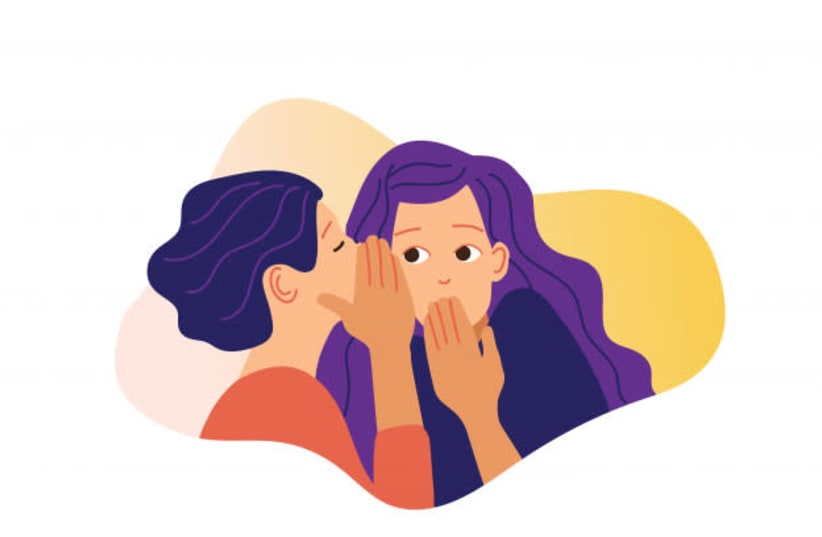When an individual is afflicted with tzaraat, a skin ailment that is inflicted as a punishment for sin, “he shall dwell apart; his dwelling shall be outside the camp (Lev. 13:46).”
At first glance, it is obvious why you would send someone with a skin disease outside of the camp – to avoid contagion. But in our sources, that is not the reason given. Rather, according to a variety of commentators, it is because the person is impure and should not be impure in the camp of the Israelites, or because it is a punishment (usually assumed for lashon hara – evil speech, though other sins are possibly implicated as well) – or because solitude is important to certain aspects of character.
One rabbi, Zalman Sorotzkin, the Lutzker Rav, suggests that solitude curbs egotism. When someone speaks ill of others, it suggests that person thinks very well of himself. When you isolate him, suddenly he realizes that in fact he needs other people. The things he judged as faults don’t loom as large in the absence of all company. He becomes more tolerant, more willing to be part of an always imperfect human community.
Similarly, the great Mussar Rav, Rabbi Yisroel Salanter, focuses on the implications of gossip. He says the punishment is the Torah declaring to the miscreant: “You are so good at finding fault with everyone else, you must have a genuine fault finding expertise. Where better to turn that skill than on your own character? Spend some time alone and look inside yourself.”
The current running beneath both explanations is that solitude is not necessarily a punishment. Coming off a pandemic, when so many have been isolated, we might be inclined to view all isolation as punitive. But the ability to be alone, the capacity to be alone, is a valuable and even indispensable one. Listen to the great child psychologist D.W. Winnicot:
“It is probably true to say that in psycho-analytical literature more has been written about the fear of being alone or the wish to be alone than on the ability to be alone... It would seem to me that a discussion on the positive aspects of the capacity to be alone is overdue.”
The psychologist Anthony Storr, in his book, Solitude, talks about the many great artists who developed their music or art or literature in solitude. Inward, wrote the poet Novalis, goes the way full of mystery. But to go inward sometimes one must have the space and solitude to dive.
Human beings certainly need one another and sustained solitude is damaging. But a certain amount of time to think about oneself and one’s actions can be salutary, even healing. Many find in aloneness the deep spring they must call on to create. In her marvelous book about Introversion, Quiet, Susan Cain has a chapter entitled, “When Corroboration Kills Creativity.” It begins with a quote from Albert Einstein: “I am a horse for a single harness, not cut out for tandem or teamwork... to attain any definite goal, it is imperative that one person do the thinking and the commanding.”
Pirkei Avot begins, “Moses received the Torah from Sinai.” Abravanel asks – why from Sinai? Why not just say from God? The most obvious answer is that Sinai is metonymy, the mountain is named to represent God. But Abravanel gives a more subtle answer. He teaches that Moses needed to experience the solitude of Sinai to be spiritually prepared for the experience. He did receive the Torah from Sinai – it was Sinai that enabled him to be the person who stands before God.
When an individual stricken with a skin disease is banished from the camp we may imagine that at first it felt like being harshly disciplined. Perhaps as the days went by and the sores began to heal, and the person began to meditate on what he had said and what he had done, it turned from a punishment into a journey. As we emerge from the pandemic, God willing, we will find that we have used the time alone to deepen ourselves and look more kindly upon one another.
The writer is Max Webb Senior Rabbi of Sinai Temple in Los Angeles and the author of David the Divided Heart. On Twitter: @rabbiwolpe.
